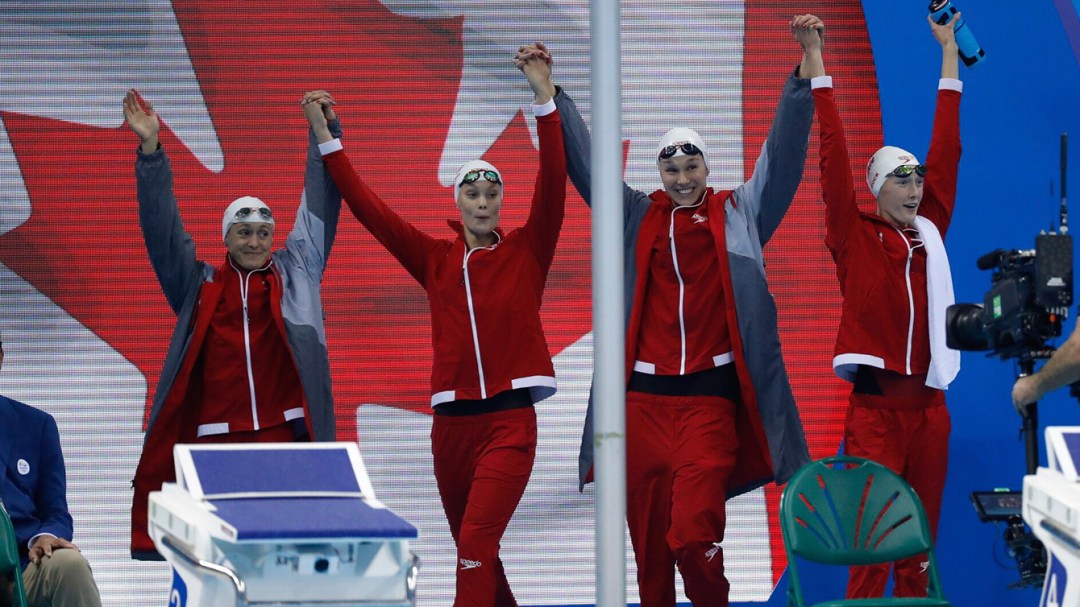Winning Canada’s first Rio 2016 medal surreal for swimmers
Surreal was the word of the day for the Canadian women’s 4x100m freestyle relay team, which captured bronze on the first night of swimming at Rio 2016 for Canada’s first medal of the Games.
RELATED: Women’s 4x100m free wins Canada’s first Olympic medal at Rio 2016
“No one really expected this from Canada coming into the meet but now that we’re here, people are just going to be surprised at what we do,” said Penny Oleksiak, the youngest member of the swimming team and anchor of the relay, who just turned 16 in June.
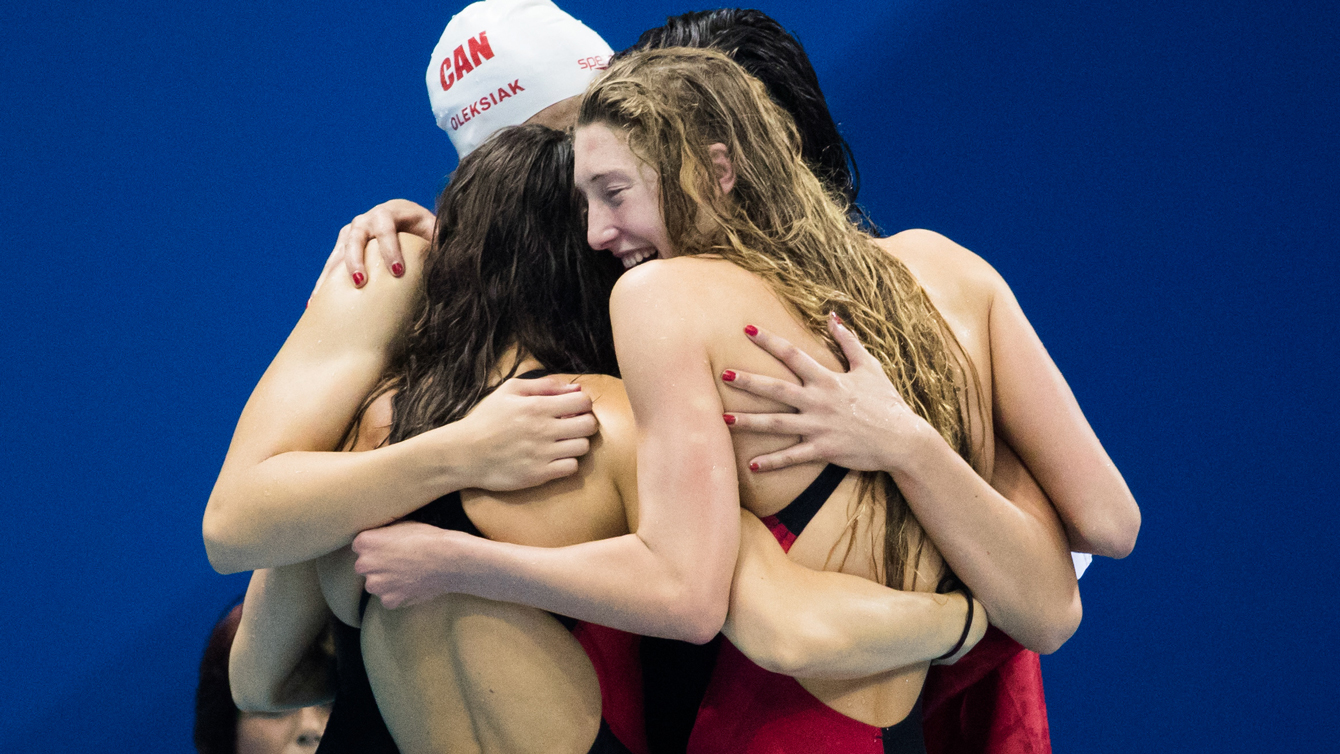
Canada’s 4x100m freestyle relay celebrates their bronze medal at Rio 2016
But if the rest of the world was caught off guard by the performance put together by Oleksiak and fellow 16-year-old Taylor Ruck, along with leadoff woman Sandrine Mainville, Chantal Van Landeghem and preliminary competitor Michelle Williams, the swimmers themselves certainly weren’t. Confident of their abilities since the Canadian Trials in early April, they’ve had their eyes on the Olympic prize for several months now.
The first evidence in Rio of their podium contender status came during the afternoon heats. With Williams in the lineup in place of Oleksiak, they took more than two and a half seconds off the national record that had been set at last year’s world championships.
“We came here to play with the big dogs,” said Van Landeghem, who had heartbreakingly missed the Olympic team four years ago by a mere one hundredth of a second. “We’ve been working for this moment. We’ve been bleeding, sweating, everything. We knew we had put in the work and now was just time to let that show.”
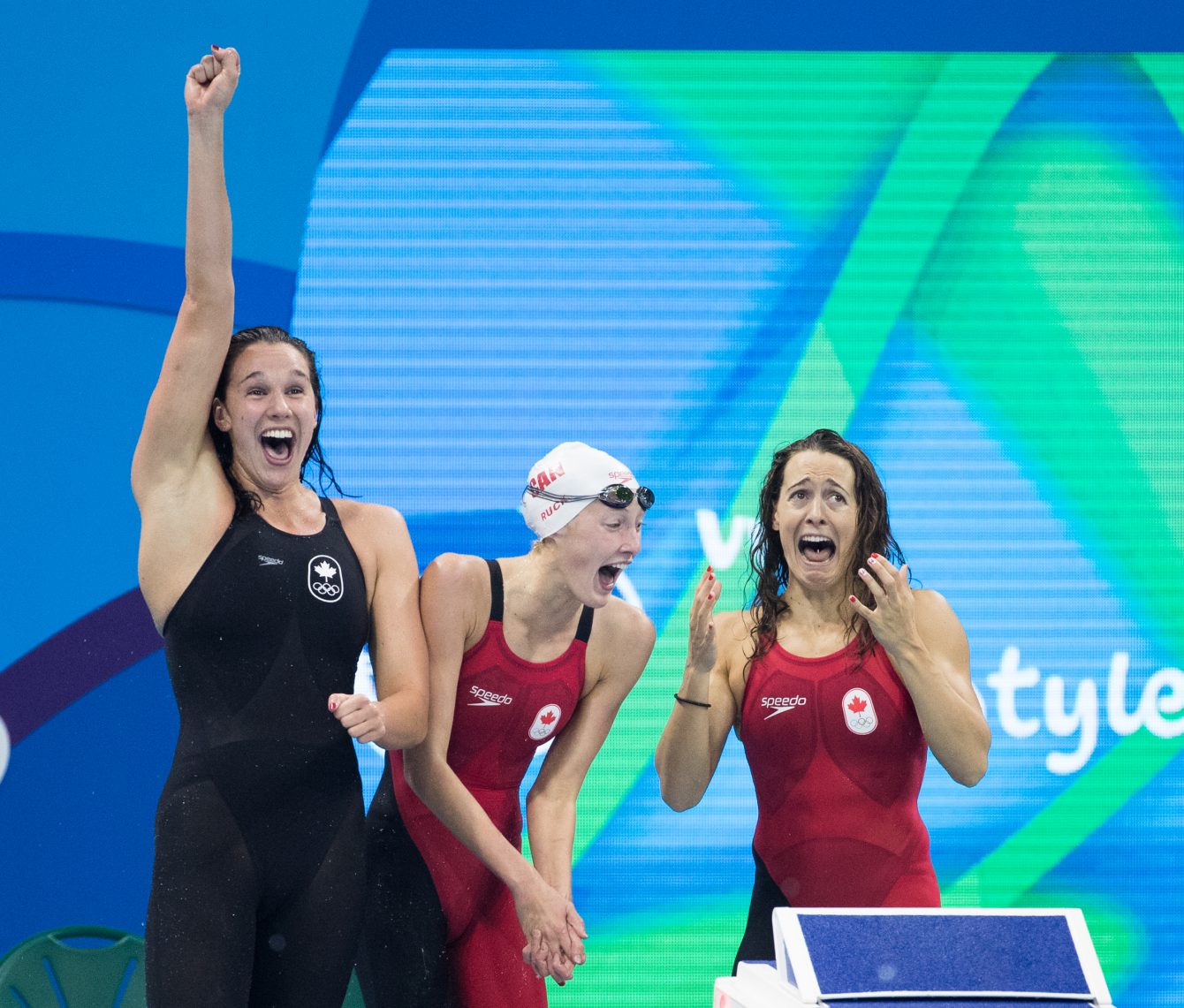
Women’s 4x100m Freestyle Relay Team wins bronze at Rio 2016, August 6, 2016. COC Photo/Mark Blinch
They also felt they had a special weapon at their disposal: their closeness. Mainville, Van Landeghem, Williams and Oleksiak all train together at the Pan Am Sports Centre in Toronto, making this medal a legacy of those home Games.
“Since the beginning we always said that we had an advantage before the other teams because we all are really close friends and we push each other in training,” said Mainville. “People would say ‘oh does it annoy you to always be with these girls’, but no.”
“For Canada to have so much depth in the 100 freestyle and be able to compete against the best in the world and to be able to race that whole race and really be in it the whole time, I mean I can’t even imagine. I can’t think four years that this would even be possible,” said Williams.
RELATED: An Olympic medal drought ends with Canada’s first Rio 2016 medal
Each of the swimmers experienced the medal race in different ways.
For Van Landeghem, it was about having fun.
“I walked out and took a deep breath and looked around because this is a once in a lifetime moment and it certainly feels that way now,” she said while wearing the bronze around her neck.
For Oleksiak, she only had about an hour between her 100m butterfly semifinal, in which she qualified fifth overall for Sunday’s final after setting the world junior record in the afternoon heats, and the relay medal race.
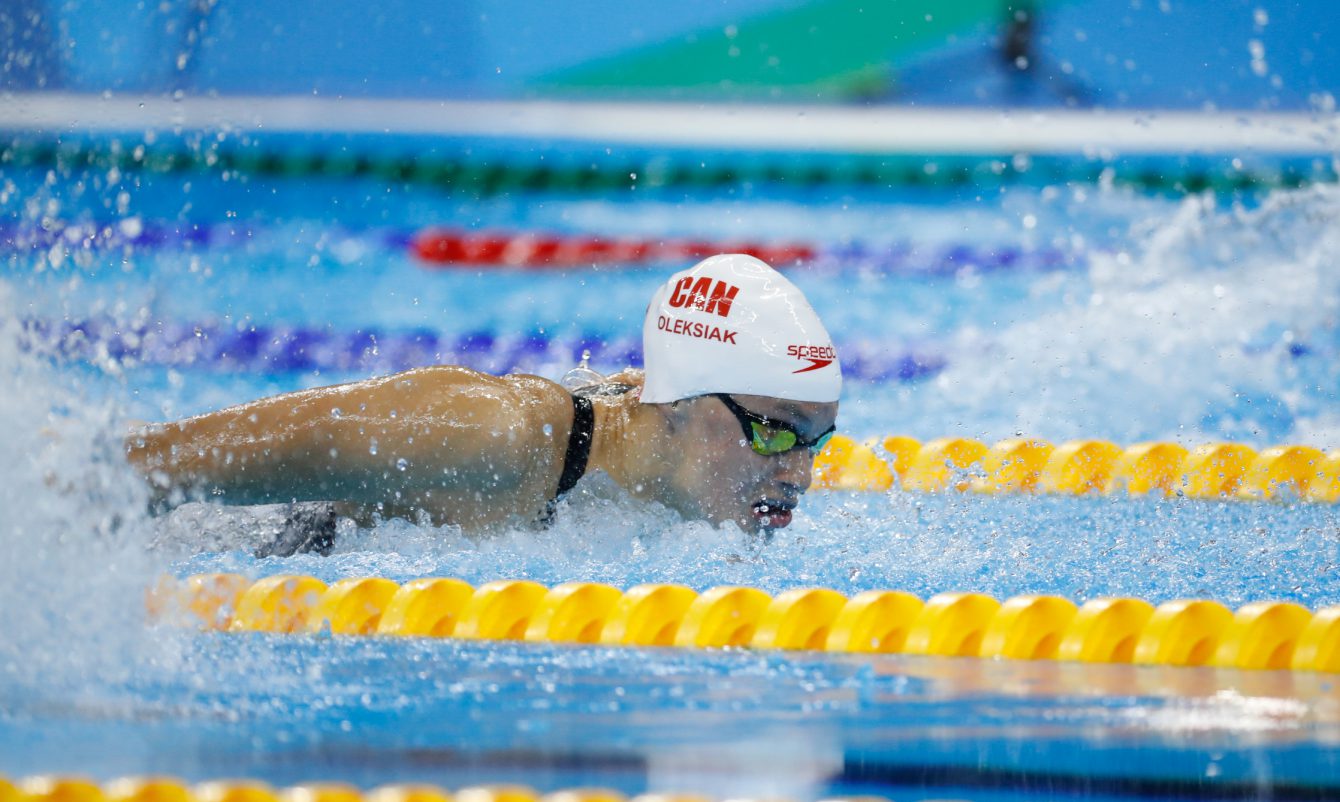
Penny Oleksiak conmpetes in the 100m butterfly at Rio 2016. August 6, 2016. COC Photo/Mark Blinch
“I’m only 16 so I don’t get as much lactic acid and I mean an hour is so much time for me. When I was in age group meets I had maybe five minutes between races,” she noted to reporters.
For Williams, she took on the role of spectator as the women dropped another second off the national record, breaking the 3:33 barrier.
“From the moment they walked out to the start to the finish I didn’t know how I’d react at the end and I was screaming so loud seeing Penny barrel down that last 25,” she recalled. “And then when she touched the wall and it hit me that I also won a medal, I just started bawling. It was so emotional and so incredible at the same time.”
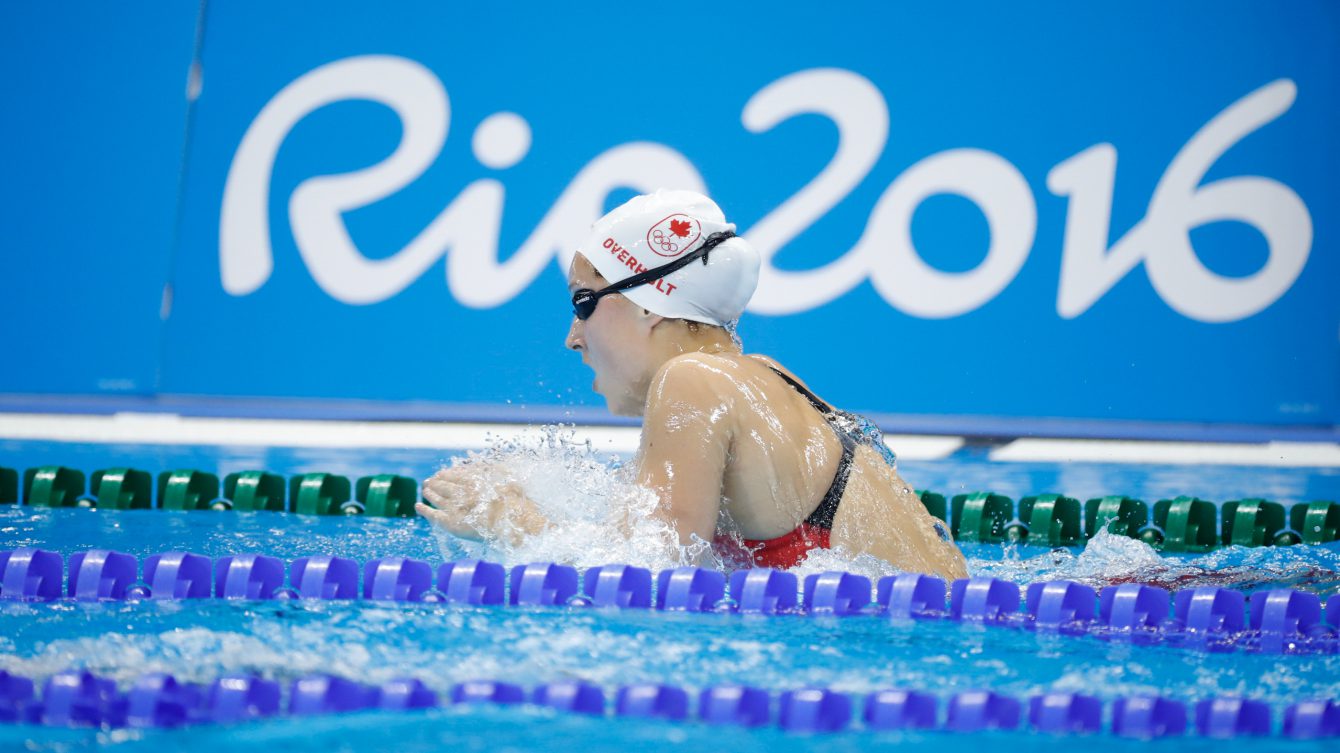
Emily Overholt competes in the 400m individual medley at Rio 2016. August 6, 2016. COC Photo/Mark Blinch
Earlier in the evening, another of Canada’s young stars, Emily Overholt, had a near-miss in the 400m individual medley, finishing fifth behind an impressive world record performance by Hungary’s Katrina Hosszu. At 18 years old, Overholt was five years younger than anyone else in that final.

